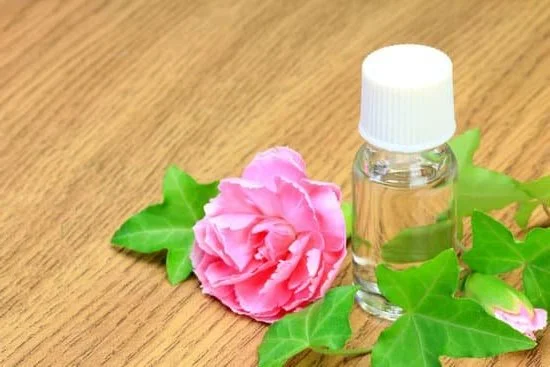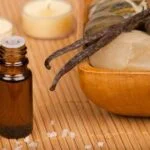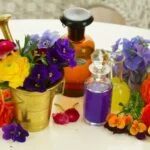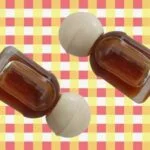Aromatherapy has gained significant popularity in recent years as more and more people seek alternative ways to improve their overall well-being. The practice involves the use of essential oils that are derived from various plants, flowers, and herbs, with the goal of promoting physical, mental, and emotional health. But amidst its growing popularity, a crucial question arises: Does aromatherapy really work?
Aromatherapy is an ancient healing practice that dates back centuries. It has been used by different cultures around the world for its therapeutic properties. Whether it was the Egyptians using aromatic substances during religious rituals or the Chinese incorporating essential oils into traditional medicine, aromatherapy has stood the test of time and continues to captivate individuals seeking natural remedies.
The power of aromatherapy lies in its ability to stimulate our sense of smell and trigger responses within our bodies. The molecules in essential oils are capable of interacting with receptors in our nasal passages which then send signals to our brain, ultimately influencing our emotions, physiology, and even memory recall. While this may sound like mere pseudoscience to some, there is evidence supporting the effectiveness of aromatherapy in improving various aspects of well-being.
In this article, we will delve deeper into understanding aromatherapy by exploring its history and origins. We will also uncover the scientific basis behind aromatherapy’s effects on the body and mind. Additionally, we will explore the benefits of using aromatherapy and examine common uses and applications in everyday life.
By addressing skepticism and sharing personal success stories, we aim to provide a comprehensive perspective on whether or not aromatherapy truly works. So let’s embark on this aromatic journey together and find out if these enchanting scents hold true healing powers.
Understanding Aromatherapy
Aromatherapy has a rich history that spans thousands of years and can be traced back to ancient civilizations. The use of aromatic plants and oils for health and well-being has been documented in various cultures, including ancient Egypt, China, Greece, and India. These civilizations believed in the power of scent to heal not just the body but also the mind and spirit.
Ancient Egyptians were among the earliest practitioners of aromatherapy. They used essential oils extensively for their medicinal properties as well as in religious ceremonies and embalming practices. The famous Ebers Papyrus, an ancient Egyptian medical text dating back to 1550 BC, contains numerous recipes and formulas for aromatic remedies.
In India, aromatherapy is deeply rooted in Ayurveda, a traditional healing system that emphasizes balance between the mind, body, and spirit. Aromatic oils have been an integral part of Ayurvedic medicine for centuries, with practitioners using them to address various ailments and imbalances.
Greek physician Hippocrates is often referred to as the father of Western medicine. He recognized the healing potential of aromatic plants and developed his own methods for extracting essential oils. Hippocrates’s teachings influenced later physicians like Galen, who continued to explore the therapeutic applications of aromatics.
As our understanding of science evolved over time, so did our understanding of aromatherapy. Modern research has shed light on the chemical composition of essential oils and their effects on the human body. This scientific understanding has helped validate many traditional uses of aromatherapy while also opening up new possibilities for its application in healthcare.
Some key figures have played pivotal roles in advancing our knowledge of aromatherapy. René-Maurice Gattefossé is often credited with coining the term “aromatherapy” after experiencing firsthand the healing properties of lavender oil when he accidentally burned his hand in a laboratory accident. Marguerite Maury further developed Gattefossé’s work by exploring the benefits of aromatherapy in massage and skin care.
Understanding the history and origins of aromatherapy helps us appreciate its long-standing use throughout different cultures. It is a testament to the enduring belief in the power of scent to heal, relax, and uplift. By embracing this ancient practice, we can tap into its wisdom and harness its potential for improving our well-being.
The Science Behind Aromatherapy
Aromatherapy is more than just a pleasant scent; it has the power to affect our bodies and minds on a molecular level. In this section, we will explore the science behind aromatherapy and how it works to enhance our well-being.
Chemical Compounds in Essential Oils
The key to understanding how aromatherapy works lies in the chemical compounds found in essential oils. Essential oils are highly concentrated plant extracts that contain these compounds, each with its own unique properties and benefits. Some of the most common compounds include terpenes, esters, alcohols, and ketones.
Each compound has different effects on the body and mind. For example, lavender essential oil contains linalool and linalyl acetate, which are known for their calming and soothing properties. On the other hand, citrus essential oils like lemon or orange contain limonene, which is energizing and uplifting.
Inhalation and Absorption
One of the primary ways aromatherapy works is through inhalation. When we inhale essential oil molecules, they travel through our olfactory system-our sense of smell-and into our brain. The olfactory system is connected to the limbic system, which plays a vital role in regulating emotions, memories, and mood.
Moreover, when we apply essential oils topically or use them during massage therapy sessions, these compounds can be absorbed through our skin into our bloodstream. Once in the bloodstream, they can reach different parts of our body where they exert their therapeutic effects.
Research supports the efficacy of inhalation as well as topical application of essential oils. Studies have shown that certain essential oils can reduce anxiety levels, improve sleep quality, alleviate pain symptoms such as headaches or menstrual cramps, boost immune function and promote relaxation.
Benefits of Aromatherapy
Aromatherapy has been praised for its wide range of benefits on the physical, mental, and emotional well-being of individuals. The use of essential oils in aromatherapy can have a profound impact on improving overall health and enhancing one’s quality of life.
Physical Benefits
One of the primary physical benefits of aromatherapy is its ability to alleviate pain and reduce inflammation. Certain essential oils possess analgesic properties that can help relieve headaches, muscle soreness, and joint pain. Oils such as lavender, peppermint, eucalyptus, and chamomile have been found to be particularly effective in alleviating these discomforts.
Moreover, aromatherapy has also shown promising results in improving sleep quality. Essential oils like lavender and chamomile are known for their calming effects that can promote relaxation and facilitate a more restful sleep. By inhaling these oils before bedtime or using them in a diffuser during sleep, individuals often find themselves waking up feeling more refreshed and rejuvenated.
Additionally, aromatherapy has been linked to boosting the immune system. Certain essential oils possess antimicrobial properties that can help fight off harmful bacteria and viruses. Eucalyptus and tea tree oil are well-known examples that can be beneficial in combating respiratory infections or soothing symptoms associated with common colds and allergies.
Mental and Emotional Benefits
Apart from its physical advantages, aromatherapy also offers numerous mental and emotional benefits. Essential oils have the power to stimulate certain brain areas responsible for emotions, memory, and cognitive functions.
Several studies suggest that essential oils like rosemary, lemon balm, or bergamot can enhance cognitive performance by improving focus, concentration, and memory retention. They may also help reduce stress levels through their anxiety-reducing properties.
Furthermore, certain essential oils are renowned for their mood-enhancing qualities. For instance, citrus oils, such as orange or lemon, are believed to uplift spirits and promote a positive mood. In contrast, oils like lavender or ylang-ylang are often used to reduce anxiety, relieve stress, and promote relaxation.
The benefits of aromatherapy on mental and emotional well-being have been substantiated by numerous scientific studies. These findings provide compelling evidence for the effectiveness of aromatherapy in improving one’s overall quality of life.
Common Uses and Applications of Aromatherapy
Aromatherapy offers a wide range of applications and can be incorporated into various aspects of daily life. From massage oils to diffusers, this practice has become increasingly popular due to its versatility and effectiveness in promoting well-being. In this section, we will explore some common uses and applications of aromatherapy, as well as specific essential oils recommended for different conditions or concerns.
Massage Oils
Massage therapy combined with aromatherapy has been shown to enhance the overall therapeutic experience. Aromatherapy massage oils are specifically blended with carrier oils and essential oils to provide relaxation and relieve tension in the body. Lavender, chamomile, and peppermint essential oils are commonly used in massage practices due to their calming and soothing properties.
Diffusers
Diffusers are devices that disperse essential oils into the air, allowing the aromatic molecules to be inhaled easily. They can create a calming atmosphere at home or in the office, promote better sleep, or even purify the air. The choice of essential oil depends on the desired effect – for example, lavender is often used for relaxation and stress relief, while eucalyptus is known for its respiratory benefits.
Bath Products
Adding a few drops of essential oil to bath products such as bath salts or bath bombs can enhance the bathing experience while providing numerous benefits. Eucalyptus and tea tree oil are commonly added for their cleansing properties; rosemary can stimulate circulation; and bergamot can uplift mood.
Inhalation
Inhalation is one of the most direct methods of using aromatherapy. It involves inhaling essential oils directly from the bottle or by adding a few drops to a tissue or inhaler device. This method allows for quick absorption into the bloodstream through nasal passages, providing immediate relief for respiratory issues or emotional well-being. Peppermint, eucalyptus, and ginger essential oils are often used for inhalation to promote respiratory health.
While these are just a few examples of how aromatherapy can be incorporated into daily life, it is important to remember that different essential oils have various properties and effects. It is recommended to consult with a qualified aromatherapist or healthcare professional to determine the appropriate use and dosage based on individual needs. By incorporating aromatherapy techniques into your routine, you may experience the potential benefits and find a sense of overall well-being.
Debunking Skepticism
As with any alternative therapy, there are skeptics who question the effectiveness of aromatherapy. In this section, we will address some of the common doubts and misconceptions surrounding this practice and provide evidence to support its efficacy.
One common skepticism is that aromatherapy is simply a placebo effect and has no real physiological benefits. Critics argue that the perceived benefits may be attributed to a person’s belief in the therapy rather than any actual therapeutic properties. However, numerous scientific studies have been conducted to investigate the effects of aromatherapy, providing evidence that goes beyond the placebo effect.
For instance, a study published in the Journal of Alternative and Complementary Medicine found that inhaling lavender essential oil significantly reduced anxiety levels in patients before undergoing open-heart surgery. Another study published in BioMed Research International showed that inhaling rosemary essential oil enhanced cognitive performance in participants compared to those who did not receive any aromatherapy intervention.
Another doubt often raised is whether essential oils can actually penetrate the bloodstream and have a physiological impact on the body. It is true that essential oils cannot penetrate through skin or reach deep tissues when applied topically without a carrier oil or during massage. However, aromatherapy primarily works through inhalation, where volatile molecules from essential oils enter the lungs and are absorbed into the bloodstream. From there, they can travel throughout the body to produce systemic effects.
It is important to note that while there is scientific evidence supporting the effectiveness of aromatherapy for various conditions, it may not work for everyone or be considered a substitute for traditional medical treatments. Aromatherapy should be seen as a complementary therapy that can aid in relaxation, stress reduction, emotional well-being, and enhancing one’s overall quality of life. As with any holistic approach, consulting a qualified professional or aromatherapist can ensure safe and effective use of essential oils.
Personal Experiences
Aromatherapy has gained popularity not only due to its potential physical and mental benefits but also through the positive personal experiences of individuals who have incorporated it into their lives. In this section, we will explore some success stories and testimonials from people who have tried aromatherapy and seen positive results.
One success story comes from Sarah, who had been struggling with anxiety and stress for years. She decided to try aromatherapy after hearing about its calming effects. Sarah started using lavender essential oil in a diffuser at home and found that it helped her relax and unwind after a long day. The soothing scent of lavender had a positive impact on her mood, allowing her to feel more grounded and centered.
Another individual’s testimonial involves Tony, who suffered from chronic migraines. Traditional methods were not providing him with the relief he needed. After doing some research, he discovered that peppermint essential oil was known for its pain-relieving properties. Tony began applying a diluted form of peppermint oil to his temples when he felt a migraine coming on, and surprisingly, it offered him significant relief from the debilitating pain.
These are just two examples among many success stories of individuals finding relief or improvement in their well-being through aromatherapy. While personal anecdotes cannot be considered scientific evidence, they provide valuable insights into the potential benefits that aromatherapy can offer.
| Success Story | Aromatherapy Benefit |
|---|---|
| Sarah’s experience with lavender | Calming effects on anxiety and stress |
| Tony’s testimonial on peppermint | Pain relief from chronic migraines |
Precautions and Risks
Aromatherapy is generally considered safe when used properly. However, it is important to take certain precautions and be aware of potential risks associated with this practice. By following safety measures, individuals can ensure a positive and safe experience with aromatherapy.
One important precaution to keep in mind is to always dilute essential oils before using them on the skin. Essential oils are highly concentrated substances that can cause skin irritation or sensitization if applied directly. It is recommended to mix a few drops of essential oil with a carrier oil, such as coconut or almond oil, before applying it topically.
Additionally, it is crucial to do a patch test before using any new essential oil. Apply a small amount of diluted oil on a small area of skin and observe for any negative reactions such as redness, itching, or swelling. If any adverse reactions occur, discontinue use immediately.
Another consideration when using aromatherapy is the potential for allergies or sensitivities to certain essential oils. Some individuals may have specific allergies that could be triggered by certain oils. It’s important to be aware of your own allergies and consult with a healthcare professional if you have any concerns.
Furthermore, certain essential oils should be avoided during pregnancy or when dealing with specific health conditions. For example, pregnant women should avoid using essential oils such as clary sage or jasmine as they can stimulate uterine contractions. Those with high blood pressure should avoid using rosemary or peppermint oil as they may raise blood pressure levels.
Finally, it is advisable to seek guidance from a qualified professional before incorporating aromatherapy into your wellness routine. A trained aromatherapist can provide personalized advice based on your individual needs and health history.
In summary, while aromatherapy offers numerous benefits for overall well-being, it is important to exercise caution and follow safety measures when using essential oils. Diluting oils before topical application, conducting patch tests, being mindful of allergies and sensitivities, avoiding certain oils during specific circumstances, and consulting with a professional can help ensure a safe and enjoyable aromatherapy experience.
| Precautions | Risks |
|---|---|
| Always dilute essential oils before using them on the skin. | Direct application of concentrated essential oils may cause skin irritation. |
| Conduct a patch test before using any new essential oil. | Adverse reactions such as redness or swelling may occur. |
| Awareness of allergies or sensitivities to specific essential oils. | Certain individuals may have allergies that could be triggered by particular oils. |
| Avoid using certain essential oils during pregnancy or for specific health conditions. | Pregnant women should avoid certain oils that can stimulate uterine contractions. People with high blood pressure should avoid oils that may raise blood pressure levels. |
Conclusion
In conclusion, after exploring the history, science, benefits, common uses, and personal experiences associated with aromatherapy, it is evident that this ancient practice does indeed work. Aromatherapy has been used for centuries across different cultures and has gained growing popularity in recent years. The chemical compounds found in essential oils have been scientifically proven to have a direct impact on our physical, mental, and emotional well-being.
Aromatherapy offers a range of benefits that can improve various aspects of our lives. It has shown promise in reducing stress and anxiety, improving sleep quality, alleviating pain and inflammation, boosting mood and cognitive function, as well as enhancing relaxation and promoting overall well-being. Scientific studies and research provide evidence supporting these claims and validate the effectiveness of aromatherapy.
While skeptics may question the legitimacy of aromatherapy, it is important to acknowledge the countless success stories shared by individuals who have experienced positive results firsthand. These individuals have found relief from specific conditions or concerns through the use of essential oils and aromatherapy practices. However, it is crucial to approach aromatherapy with caution and ensure proper usage by following guidelines and consulting with qualified professionals.
Frequently Asked Questions
Does aromatherapy have any real benefits?
Aromatherapy is a holistic healing practice that utilizes essential oils and their aromas to promote well-being and address various health concerns. While the scientific evidence on its benefits may be limited, many individuals report experiencing positive effects from aromatherapy. The aroma of essential oils can stimulate the olfactory system, which is connected to the brain and emotions, potentially inducing feelings of relaxation, stress relief, and improved mood.
Furthermore, certain essential oils are believed to possess antimicrobial or anti-inflammatory properties that could provide additional benefits. Despite the need for further research, aromatherapy has been widely used as a complementary therapy to enhance overall wellness.
Has aromatherapy been proven to work?
Although research exploring the effectiveness of aromatherapy is still evolving, some studies have provided promising results regarding its efficacy. For instance, a systematic review conducted in 2020 found that inhaling certain essential oils can decrease symptoms of depression and anxiety in adults.
Another study published in 2019 suggested that lavender oil inhalation might help alleviate pain during labor. However, it is important to note that more rigorous research with larger sample sizes and placebo-controlled trials is necessary to establish definitive proof of aromatherapy’s effectiveness.
Does aromatherapy actually work for anxiety?
Aromatherapy has been considered as a potential option for managing anxiety due to its calming properties and ability to alleviate stress symptoms. Some essential oils commonly used in aromatherapy, such as lavender or chamomile oil, are believed to have sedative effects that can help reduce anxiety levels and promote relaxation. While individual experiences may vary, anecdotal evidence often supports the use of these essential oils for anxiety relief.
Additionally, a review published in 2017 suggested that inhalation of lavender oil may have anxiolytic effects based on findings from several studies; however, further research remains necessary to fully understand the extent of aromatherapy‘s effectiveness for anxiety disorders. It is worth noting that aromatherapy should not be viewed as a standalone treatment for anxiety, but rather as a complementary approach that can be used in combination with other evidence-based interventions.

Are you looking for a natural way to improve your health and wellbeing?
If so, aromatherapy may be the answer for you.





